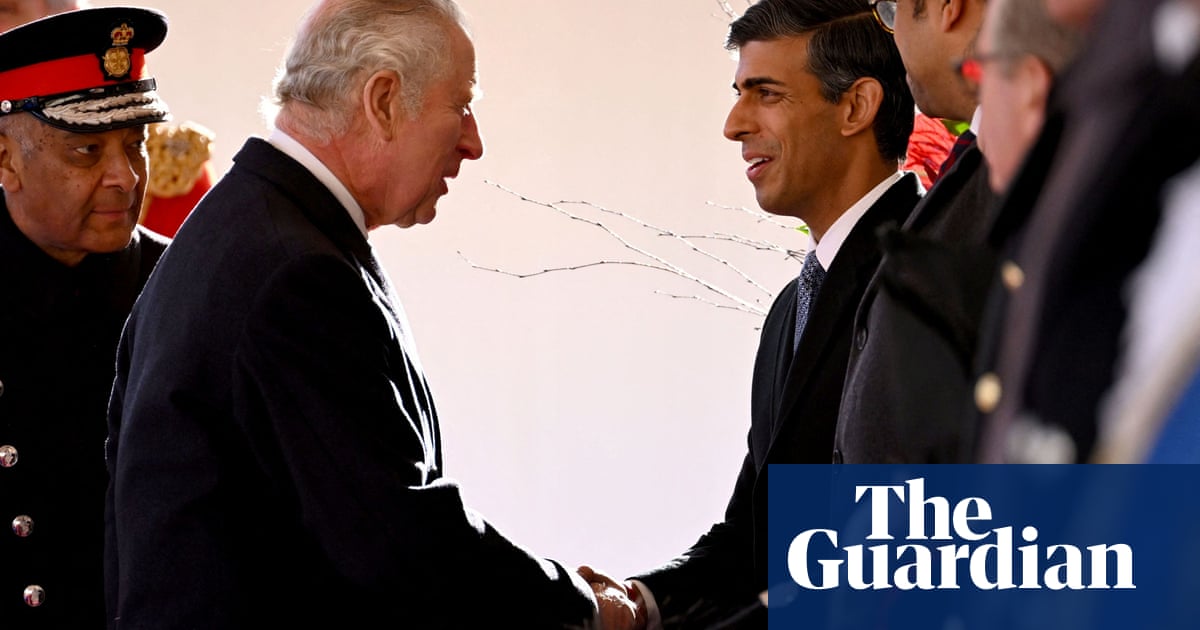
The Irish taoiseach, Micheál Martin, has called on Downing Street to “reciprocate the generosity of spirit” shown by EU leaders on the Northern Ireland protocol after they extended the grace period allowing chilled meats to be shipped to the nation from Britain.
On Saturday, Martin said “warning each other is over” and called for engagement to find solutions through the withdrawal agreement.
It came after UK cabinet ministers ramped up pressure for concessions on the protocol by warning of disruption to peace if changes are not made.
Martin said: “I think the British government should acknowledge the approach of the EU this week in terms of the extension of the grace period and also in terms of the facilitation around the medicines issue.
“There is no question that the European Commission and the European Union leaders have demonstrated goodwill and a generosity of spirit towards the British government in resolving this issue.
“It really is time for British government to reciprocate the generosity of spirit that European leaders have shown. And also the sense of flexibility that Europe has indicated to the UK that it is willing to deploy, in respect of the workingout of issues pertaining to the protocol.
“The time for warning each other is over. It’s time for engagement, constructive engagement, with a view to reaching a resolution.”
The EU decision on chilled meats, after a request from the UK, avoids a trade dispute by delaying the ban until 30 September while efforts continue to find a lasting solution to measures which prevent a hard border in Ireland.
The UK government accepted as annex two of the protocol a measure stating that chilled meats, including “meat preparations” such as sausages, have to be sent frozen into the bloc from non-EU states without a mutual and all-encompassing veterinary agreement. The UK’s decision not to align with EU standards in plant and animal products has led to a range of sanitary checks on plant and animal products.
UK cabinet ministers have been calling for concessions on the protocol, saying that “a seriously unbalanced situation” has developed in the operation of the agreement.
In a joint article in the Irish Times, Brexit minister Lord Frost and Northern Ireland secretary Brandon Lewis said this week’s extension of a grace period in the so-called sausage war was welcome but “addresses only a small part of the underlying problem”.
The pair warned the EU that the protocol, negotiated as part of the Brexit deal, risks “damage” to the Good Friday agreement, which in 1998 helped to secure peace after decades of sectarian violence in Northern Ireland, unless a “new balance” is found in terms of customs checks.
Frost and Lewis urged Brussels to adopt a softer approach to the implementation of the protocol, which the former helped to negotiate.
It comes after talk of tariffs over the UK’s failure to implement the Irish protocol in the withdrawal agreement.
The potential prohibition on chilled meats from Britain is one result of the protocol, which has created a series of economic barriers on Irish Sea trade to retain the integrity of the EU. The protocol is aimed at avoiding a hard border with Ireland by in effect keeping Northern Ireland in the EU’s single market for goods.
But unionists have complained the terms are splitting Northern Ireland from Britain and harming business, with some British products not available in shops due to extra costs for retailers.
The UK has repeatedly rejected a temporary Switzerland-style agreement with the EU under which the UK would align with Brussels’ rulebook for a period and 80% of the checks would no longer have to take place.
The German chancellor, Angela Merkel, who held talks with the prime minister, Boris Johnson, at Chequers in Buckinghamshire on Friday, expressed optimism that “pragmatic solutions” can be reached on the protocol.
Johnson, at a joint press conference with Merkel, said he hoped the “wurst is behind us” when it came to the chilled meat saga.












